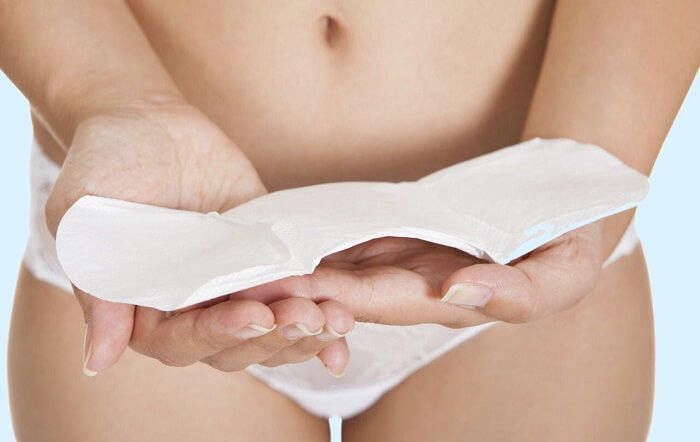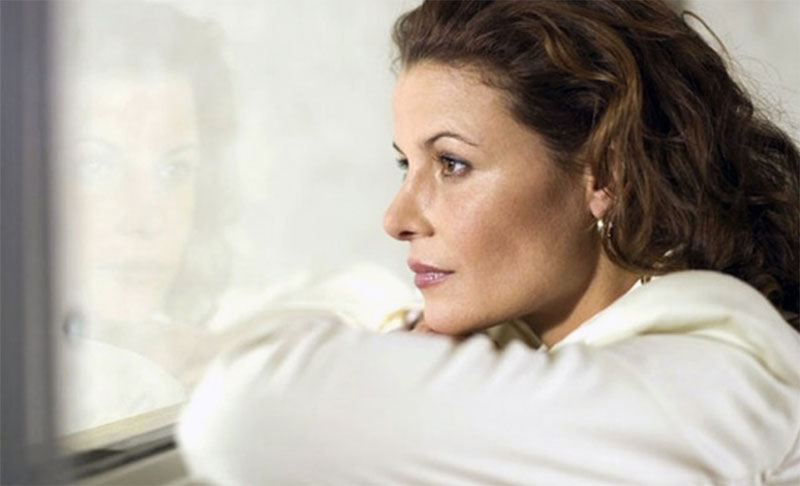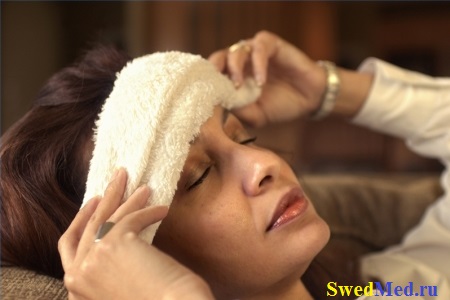Increased sweating in hot weather and during active physical labor is a normal phenomenon that is necessary for the body's thermoregulation. Sometimes hyperhidrosis is observed during sleep, which cannot be considered the norm. That is why you should know why this condition occurs and what can be done to reduce sweating at night.
How to determine the presence of excessive sweating at night
Normally, less than 100 ml of liquid is released on the surface of the skin in 5 minutes. In other cases, we can talk about increased sweating. At home, you can diagnose a similar condition if:
- there is a night awakening (at least once a night) because the surface of the body is completely wet;
- have to change clothes and bed linen at night;
- irritability appears due to a deterioration in the quality of sleep.
Important! In the presence of one of the factors, we can talk about high sweating. In this condition, it is important to accurately determine the cause of the disease in order to choose the right treatment.
Common Causes That May Cause Increased Night Sweating
Hyperhidrosis in women at night can be triggered by conditions environment and emotional state. The most common causes of increased sweating include:
- sleeping under a too warm blanket;
- excessively high air temperature in the bedroom;
- stressful situations;
- poor-quality synthetic bedding material that does not provide thermoregulation.

Each of these problems is easily eliminated by changing the conditions of sleep. If night sweats persist comfortable temperature with suitable bedding, a medical examination is required to find the cause of the disease.
Causes of increased sweating associated with the presence of diseases
There are a number of diseases that affect the production of sweat in women. In such conditions, hyperhidrosis is a symptom of an emerging deviation. Such diseases include:
- infectious lesions;
- vegetovascular dystonia;
- tumors, malignant neoplasms;
- rheumatological diseases;
- endocrine disorders.
Also, the secretion of sweat glands can be affected by diabetes insipidus, hyperplasia of the lymph nodes, Prinzmetal's syndrome.
In the presence of hyperhidrosis, a woman experiences severe sweating both day and night - the condition is provoked by a general increased activity of the glands.
Important! Acute food poisoning, as well as taking certain medications (as an adverse reaction), can provoke increased night sweating.
Hyperhidrosis
Hyperhidrosis does not pose a particular health hazard, but is a cause of human discomfort. The reasons for its appearance may be:
- excess sweat glands in the skin;
- heredity;
- job deviations nervous system;
- the body's response to stress;
- effect of taking certain medications.
Often the appearance of hyperhidrosis is caused by a lack of human hygiene.

Diseases of an infectious nature
Night sweats are often observed if a woman's body has infectious processes of almost any nature. This is due to an increase in body temperature, which contributes to the accelerated removal of fluid, and the person begins to sweat.
Deviations in the work of the endocrine system
Improper functioning of the endocrine system can have many side effects and symptoms, among which are increased sweating during sleep. Especially often sweating is observed in diabetes mellitus, insufficiency of the functioning of the thyroid gland and sex glands.
Oncological diseases
Malignant neoplasms can cause increased sweating in the body. In such diseases, the whole body sweats, especially the head and neck. Usually the condition is observed with leukemia or the formation of tumors directly.
Night sweats occur as side effect when taking certain medications. In this case, you should contact a specialist and, after consulting, cancel the drug, replace it with another one, or choose an adequate anti-symptomatic therapy.
Important! Most often, sweating in women at night is caused by such groups of medicines as antipyretics, antipsychotics (antidepressants), phenothiazines, cytostatics, antipyretics and antihypertensives.

VSD
The tone of the blood vessels can provoke night sweating of certain parts of the body (especially often - the limbs, and sometimes the head and chest also sweat). This condition is usually a consequence of the impact of stress factors on the body, an unstable emotional background, combined with chronic fatigue.
Rheumatological diseases
Gout, arthrosis, arthritis of the rheumatoid type, and lupus erythematosus are often detected by an increase in the sweating of a woman's body, especially at night.
Acute intoxications
Poisoning or intoxication is accompanied by fever and increased sweating, complemented by intestinal upset, nausea, and vomiting.
In addition to food poisoning, the condition can be caused by the use of narcotic drugs, an overdose of drugs for the common cold and thyroid hormone drugs, and increased consumption of caffeine.
The use of a number of products affects the secretion of the glands of the skin, causing them to work more actively, especially at night. These include:
- hot spices - pepper, ginger;
- fatty meat, fish;
- citrus fruit;
- sweet, chocolate;
- strong coffee, tea;
- tinted lemonades, mineral waters;
- salty preserves.
Even the temperature of the dishes can affect the state - the hotter the product or drink, the more likely the manifestation of sweat.

Important! Smoking and increased consumption of strong alcoholic beverages can provoke female sweating at night.
Features of the body of a woman and sweating
All the above causes of night sweats are more or less inherent not only in women, but also in men. At the same time, there are a number of factors that provoke night sweats only in women. Each of them is associated with the functioning of the endocrine system and sex glands.
Pregnancy
During pregnancy, a woman's body undergoes significant changes in hormonal levels, which provokes a number of symptoms. Usually, excessive sweating of the fetus is observed in the form of hyperhidrosis - activity is observed both day and night. There may be a simultaneous presence of chills and sweating. The phenomenon is not dangerous, its mandatory treatment is not required. In this case, it is better to consult a doctor on this issue in order to exclude the presence of serious abnormalities during pregnancy.
Before menstruation, the concentration of the hormone estrogen in the body increases, which affects body temperature - thermoregulation changes in the hypothalamus (its threshold rises), as a result of which sweat production increases.
The condition often increases at certain points in the menstrual cycle - the most abundant is observed a few days before the start of the cycle and directly during menstruation. This condition is associated only with the transformation of the hormonal composition of the body, which is not dangerous.

Menopause
Important! The most common cause of night sweats in women is menopausal changes, in which the effect of estrogen on the body decreases due to a decrease in its content in the blood.
During menopause (usually after age 50), women experience alternating hot and cold sweats, especially during nocturnal sleep. The reason for this condition is the age-related restructuring of the body, during which the estrogen content in the blood decreases. This disrupts thermoregulation by raising body temperature and causing increased sweating.
The condition can be noted throughout the day. Often in menopause after 40 years, hot flashes are not felt - on the contrary, women often feel the manifestation of cold sweat.
The problem of excessive sweating requires a visit to a doctor to determine the cause and select an adequate therapy for the condition. To make a diagnosis, the patient's history is collected, which indicates information about the disease - its duration, frequency of manifestation, side effects, symptoms and other complaints of the patient. This is required in order to issue a referral to a narrow specialist in charge of the identified deviation.
The doctor collects the patient's own medical history, which indicates previous illnesses and factors that could affect the development of increased night sweats.
In some cases, certain analytical studies are prescribed, which include a blood test, the hormonal composition of the body, determining the correctness and completeness of the liver and kidneys. Based on the results, the doctor prescribes the treatment of the disease - either sweating as a symptom, or the disease itself when it is detected.

Important! General methods of treatment are most effective in cases where the symptom is not a manifestation of any internal disorder.
There are several approaches for the treatment of increased night sweats in women. The technique includes a number of procedures aimed at improving the general condition of the body:
- introduction to the daily routine of daytime walks;
- inclusion of daily sports activities;
- optimization of the level of humidity and air temperature in the bedroom;
- taking a contrast shower before bed;
- selection of sleepwear and bed linen made from natural materials;
- changing the diet to avoid excessively hot, spicy or fatty foods;
- weight loss (if overweight);
- exclusion of stressful situations;
- refusal to drink alcohol and mineral water before bedtime.
In cases where increased sweating at night caused by emotional instability, you should wipe the wet areas of the body with wet wipes soaked in lemon juice. Such a measure can fix the problem for a short time.
There are a number of procedures and dietary supplements designed to alleviate the condition of women who have hyperhidrosis. They are taken only on prescription, as self-medication can be dangerous. Therapy is selected in accordance with the identified disease.
With a lack of hormones, specialists prescribe medications that increase their production. Dietary supplements are widespread, which include plant analogs of hormones - phytoestrogens.
Inonophoresis is widespread - a method of influencing problem areas with current through brine. Can only be used for sweaty limbs. Surgical methods include curettage and sympathectomy. In the first case, more than half of the sweat glands are removed, in the second, part of the nearby nerve fibers is destroyed to stop impulses.

The latest methods of laser treatment or liposuction of the area have a long-term therapeutic effect. Psychotherapy is effective for psychological problems.
Folk remedies
Some may help reduce sweating. folk remedies treatment. The most effective of them are infusions of chamomile, walnut leaves and oak bark.
Chamomile in the treatment of night sweats
An infusion of chamomile flowers is prepared by pouring three tablespoons of dried raw materials with a liter of boiling water. After an hour, a tablespoon of baking soda is added to the solution. The mixture is rubbed as needed under the armpits.
Oak bark tincture for sweat
An oak bark tincture can be prepared by pouring 1/2 teaspoon of the substance with half 100 ml of boiling water. The juice of half a lemon is added. After cooling down, wipe problem areas.
Helps with the problem and alcohol tincture of walnut leaves. Leaves in a ratio of 1:10 are poured with chilled vodka. Strained mixture as needed wipe problem areas as needed.

Preventive measures
In the absence of diseases, it is possible to prevent the occurrence of such a problem as increased sweating. Balanced and proper nutrition, bed linen and clothes made of breathable materials, wakefulness, walking and sports can help get rid of the problem or significantly reduce its manifestations.
Important! Stress is often the cause of night sweats. Emotional and mental stress and anxiety should be reduced.
Excessive sweating during sleep in women responds well to treatment. It is important to accurately establish its cause, since all further treatment depends on it.
Night sweats are a symptom of many diseases. In men, this may be a sign of disruption of the endocrine glands or somatic diseases. Night sweats may indicate a sluggish infection in the body or be the initial symptom of an incipient respiratory or cardiovascular disease.
Excessive night sweats occur due to pathological conditions of the body, while there is no connection with overheating of the body due to an increase in air temperature or the use of a blanket that is too warm.
There are many diseases that cause night sweats.
Male sweating at night is their first symptom. In order to accurately determine the developing disease and start treatment on time, you should contact the therapist to interview the patient in detail, study his medical history and conduct the necessary laboratory examination.
What diseases can cause hyperhidrosis
 The doctor must, when examining the patient and diagnosing, exclude the development of diseases that destroy the human body completely. One such disease is sarcoidosis. It is a granulomatous disease that affects several body systems. The cause of the disease remains unclear, but it is not an infectious disease. They often affect young and middle-aged people. This disease is asymptomatic for a long time and is accidentally detected during research.
The doctor must, when examining the patient and diagnosing, exclude the development of diseases that destroy the human body completely. One such disease is sarcoidosis. It is a granulomatous disease that affects several body systems. The cause of the disease remains unclear, but it is not an infectious disease. They often affect young and middle-aged people. This disease is asymptomatic for a long time and is accidentally detected during research.
Sarcoidosis is characterized by symptoms such as fatigue, loss of weight and appetite, and persistent low fever. On the part of the respiratory system, patients are concerned about coughing, shortness of breath, bronchial obstruction and fibrosis of the lung tissue, when healthy lung tissue is replaced by scar tissue. Perhaps an increase in peripheral and intrathoracic lymph nodes. Males may have purple-bluish, shiny patches irregular shape on various parts of the body.
Sarcoidosis eventually affects the bone marrow, spleen, liver, kidneys, digestive, endocrine and reproductive systems, which can manifest as nonspecific symptoms that are characteristic of many diseases of the affected organs. One of the symptoms of incipient sarcoidosis is excessive sweating at night.
Nocturnal hyperhidrosis in men is a serious reason to see a doctor. Unlike excessive daytime sweating, night sweats are a symptom of a disease in the body that requires systematic treatment. It could be:

Sweating at night can cause inflammatory processes that increase the hormonal levels that occur in any part of the human body.
For serious illnesses, the doctor can choose an individual treatment program. In the selection of medicines, he will be guided by the results of laboratory tests, diagnosis and severity of the disease. With complex therapy, antibiotics, anti-inflammatory, immunomodulatory, antiviral drugs, as well as physiotherapy, diet, vitamin and infusion therapy are prescribed.
The process of constant sweating is absolutely normal. It is necessary to maintain a certain body temperature, remove metabolic products, and also to create a protective barrier on the surface of the skin.
Severe sweating at night in women is very common. Some try not to pay any attention to it, which is completely wrong.
Such a phenomenon may be a symptom of a common cold or indicate the onset of a very serious illness.
How do you know if you're sweating more than normal?
If in 5 minutes more than 100 ml of liquid is released on the surface of the body, then this is considered excessive sweating in women. Naturally, it is impossible to calculate the amount of sweat at home.
There are other criteria:
- a person wakes up several times at night due to the fact that he is completely wet;
- every time you have to change bed linen and change into dry clothes;
- due to disruption of night sleep, irritability, decreased concentration of attention, deterioration in working capacity, etc. are observed during the daytime.
Normally, during sleep, the intensity of sweating decreases, since a person does not move and does not experience any emotional stress. If sweating, on the contrary, increases, it is urgent to contact a specialist.
Why can sweating appear at night?
 If a woman is worried about sweat at night, she definitely needs qualified medical help to find out the cause of this unpleasant phenomenon.
If a woman is worried about sweat at night, she definitely needs qualified medical help to find out the cause of this unpleasant phenomenon.
You may need a serious examination with the involvement of various specialists.
So, there are a number of conditions and diseases that cause women to sweat at night:
- hormonal changes observed during pregnancy, menopause or due to the menstrual cycle;
- gynecological (problems with the ovaries);
- diseases of the endocrine organs and metabolic disorders (diabetes mellitus, hyperfunction of the thyroid gland, Itsenko-Cushing's syndrome, etc.);
- infections (influenza, tuberculosis, malaria, mononucleosis and others accompanied by febrile conditions);
- autoimmune pathology (rheumatoid arthritis);
- oncology (leukemia, lymphoma, etc.);
- allergies;
- neuro-psychiatric diseases (multiple sclerosis, epilepsy, depression, psychosis, phobias, etc.);
- stress;
- excessive alcohol consumption;
- addiction;
- acquired immunodeficiency syndrome (AIDS);
- as a side effect of certain medications.
There are cases when, as a result of the examination, the cause of severe sweating at night in women remains unclear.
This is the so-called idiopathic sweating, which occurs against the background of the relative well-being of the body as a whole.
Sometimes it is caused solely by external factors, for example, too high a temperature in the room in which a person sleeps at night.
Medications that cause excessive sweating
excessive sweating at night in women may be due to the intake of certain drugs, i.e. be a side effect.

These can be the following groups of drugs:
- antihypertensive;
- antipyretic;
- psychotropic (neuroleptics, antidepressants);
- cytostatics;
- steroid hormones, etc.
In the process of getting used to the action of the drug side effects often become less pronounced or completely disappear.
If this does not happen, you should contact your doctor to adjust the dose of the medicine or replace it with another one.
Features of the female body and sweating
 Hormonal changes in women are often accompanied by increased sweating. This may be observed in the following cases:
Hormonal changes in women are often accompanied by increased sweating. This may be observed in the following cases:
- before menstruation;
- during pregnancy;
- during the climax.
The cause of night sweats in women before menstruation (every night or only once) is an increase in estrogen in the blood.
Changes in the level of this hormone also cause irritability, weakness, headaches, i.e. so-called premenstrual syndrome.
Very heavy sweating during pregnancy most often occurs during the first trimester. A decrease in estrogen causes a dysregulation of water-salt metabolism and body temperature.
As a result, the body of a pregnant woman releases more heat, which activates the activity of the sweat glands.
Hormonal changes during menopause are characterized by hot flashes, i.e. sudden intense sweating, which is also observed during night sleep.
What serious pathology can night sweats indicate?
Unfortunately, night sweats can indicate that a woman is developing dangerous ailments, such as malignant neoplasms, leukemia, lymphoma, etc.
In most cases, other accompanying symptoms are observed - fever, a sharp decrease in body weight, weakness, etc.
Diseases such as tuberculosis, endocarditis, osteomyelitis, abscesses, and even AIDS are often accompanied by night sweats.
Pathology of the nervous system, mental disorders often lead to disruption of the thermoregulatory system.
Hyperthyroidism and diabetes mellitus are the main endocrine causes of night sweats.
What foods can cause night sweats?

Certain foods can trigger night sweats in women:
- hot seasonings and spices - mustard, ginger, horseradish, curry, etc.;
- acidic foods - pickles, citrus fruits;
- fatty and salty foods;
- drinks containing caffeine - coffee, tea, coca-cola, etc.
Excessive alcohol consumption leads to disruption of the liver and vasodilation, which is the cause of night sweats.
This may serve as the first sign of the development of chronic alcoholism, even before the development of a complete clinical picture.
What to do if sweating is not caused by a disease?
If the causes of sweating at night in women are the functional characteristics of the body or the effects of stress, then the following measures should be taken:
- monitor the air temperature in the bedroom - it should be within 18 - 21 degrees. It is this temperature regime that is optimal for sleep, when the body's energy resources are restored and regenerative processes are activated at the cellular level;
- choose the right bedding and underwear for sleeping. They should be made from natural materials that are breathable. Synthetics poorly absorb moisture and are airtight, which disrupts heat transfer processes;
- ventilate the room intended for sleeping more often. The air should be fresh cool, so air conditioners can be used in the hot season;
- adhere to certain principles of nutrition. In the afternoon, it is necessary to abandon spicy, spicy, fatty or fried foods. It is not recommended to drink coffee, strong tea and carbonated drinks. Do not overload digestive system- dinner should be no later than two hours before bedtime. Such simple rules will help to make sweating less intense, and sleep deeper and more restful.
Health care
If a woman has severe sweating at night, you should not engage in self-diagnosis and self-treatment. First of all, you should consult a therapist.
The doctor will conduct a detailed conversation, prescribe a series of tests and additional studies.

In most cases, a detailed blood test helps to identify the underlying disease and determine the cause of sweating.
Depending on the results of the examination, the therapist refers the patient to other specialists - a neurologist, a cardiologist, a gynecologist, an endocrinologist, an oncologist, an allergist, a psychiatrist, etc.
The choice of treatment method depends on the cause that caused the increased activity of the sweat glands, as well as on the frequency and severity of nocturnal seizures. Adequately prescribed therapy in most cases quickly brings positive results.
Excessive sweating in hot weather or during physical exertion is normal and even necessary. But heavy sweating during sleep is a cause for concern for both women and men. Therefore, every person who is faced with night sweats is interested in fighting the problem.
Women are prone to night sweats during menopause.
Causes of sweating in a dream in women
It's not a secret for anyone that the male and female bodies have a number of significant differences, therefore, it is necessary to understand why sweat is strongly released at night, should be taken separately. Thus, sweating during sleep in women has the following reasons:
- infectious diseases (tuberculosis, HIV, infections caused by a fungal infection);
- endocrine diseases (diabetes mellitus, hyperthyroidism, ovarian failure);
- rheumatological diseases;
- malignant neoplasms;
- vegetative-vascular dystonia.
Women may also experience night sweats as a result of acute poisoning or the use of certain medications.
General Factors
Night sweats may not necessarily be the result of a serious medical condition. Sometimes heavy sweating during sleep occurs for the following reasons:
- a very warm blanket is used;
- in the bedroom, an uncomfortable temperature for the body of a woman;
- strong feelings and stress;
- bed and night linen is made of poor quality materials.
Such causes of night sweats in women are easily eliminated, and if in this way it is possible to get rid of increased sweating, then there should be no cause for concern. However, if after eliminating the above factors, night sweats continue, then you should consult a doctor to identify their underlying root cause.
Food and women's night sweats
 Food products can seriously affect the increase in sweating.
Food products can seriously affect the increase in sweating. Night sweats in women can occur due to the use of following products supply:
- citrus;
- pepper, ginger;
- meat and fish of fatty varieties;
- chocolate;
- coffee;
- carbonated drinks with dye;
- pickles.
In addition, increased sweating provokes hot food and drinks, tobacco and alcohol.
Infectious diseases
In women, sweating at night increases if they have infectious diseases. Most of these ailments are accompanied by elevated temperature body, which contributes to the release of excessive amounts of sweat. Often, women associated with infectious diseases in women are observed at night.
Disorders of the endocrine system
Failure of the endocrine glands leads to increased sweat production. Disrupt the functioning of the endocrine system such diseases as diabetes mellitus and insufficient activity of the thyroid gland and ovaries.
Rheumatological diseases
Night sweats in women can occur as a result of rheumatological diseases. These include: arthrosis, gout, rheumatoid arthritis, lupus erythematosus and other rheumatological diseases that have a symptom in the form copious excretion sweat.
Oncology
 Excessive sweating can be a symptom of neoplasms in the body.
Excessive sweating can be a symptom of neoplasms in the body. Women sweat a lot at night can also be in the presence of malignant tumors in the body. Excessive sweating at night can be a symptom of leukemia or tumors. Therefore, observing excessive sweating in oneself, it is necessary to consult a doctor and conduct a diagnostic examination. By identifying oncological ailments at an early stage, the chance for a full recovery increases significantly.
Vegetative-vascular dystonia
With vegetative-vascular disorders in women, increased sweating at night can be observed. The disease is characterized by sweating of certain parts of the body, which occurs as a result of exposure to the body of frequent stress, increased emotional state, with a feeling of constant fatigue.
Taking medications
Women may experience heavy night sweats as a side effect of certain medications. Phenothiazines, antihypertensives, and antipyretics can increase sweat secretion. In this case, you should stop further use of the drugs and consult a doctor to obtain a similar drug.
Acute poisoning
 Acute poisoning contributes to increased sweating.
Acute poisoning contributes to increased sweating. provoke heavy sweating at night, women may have poisoning, which is accompanied by vomiting, diarrhea and high body temperature. Acute poisoning includes: the use of certain types of drugs for the common cold, an overdose of cocaine, caffeine or amphetamines, thyroid hormones, which treat thyroid insufficiency.
Other pathologies
The following ailments can cause excessive sweating:
- diabetes insipidus;
- granulomatous disease;
- Prinzmetal syndrome;
- hyperplasia of the lymph nodes;
- depression and chronic fatigue.
Another cause of night sweats can be hyperhidrosis. However, sweating will disturb not only when a person is sleeping, but also during wakefulness throughout the day. Treatment for hyperhidrosis includes the use of various gels, ointments, tablets, or injections.
"Female" causes of sweating
There are the following causes of night sweats, which occur exclusively in the female:
- Pregnancy. During the period of bearing a child, a woman's body undergoes serious hormonal changes, therefore, hyperhidrosis during pregnancy is not a serious pathology and it is not necessary to treat it, it will go away after childbirth. However, it is worth informing the doctor about this in order to exclude other serious diseases, the symptom of which is hyperhidrosis.
- Menstrual cycle. A few days before menstruation and with its onset, sweating increases. Women feel tired, have stomach pains and are exposed to excessive sweating at night.
- Menopause. In women, there is, replaced by fever, increased night sweats. The reason is the restructuring of the hormonal background in the body.
Establishing diagnosis
 Only a specialist can make a correct diagnosis for night sweats.
Only a specialist can make a correct diagnosis for night sweats. If you experience excessive sweating at night, you should consult a doctor. He will collect the necessary information, analyze complaints and symptoms, and, based on the results, refer him to a highly specialized specialist. This may be an allergist, neurologist, oncologist, cardiologist or endocrinologist. A narrow profile doctor will ask the patient about complaints, previous diseases and circumstances that contribute to the onset of the disease.
To make an accurate diagnosis, the doctor needs to order laboratory tests, including blood tests, thyroid hormones, and liver and kidney function. Based on the results of the tests and the collected anamnesis, the doctor prescribes necessary treatment. Therapy may be directed at the underlying disease, in which sweat production is increased, or directly at the elimination of hyperhidrosis.
Content:
The human body is a single balanced system in which the function of thermoregulation plays an important role. Its task is to protect the body from overheating by internally adjusting the temperature. The slightest failure in the system leads to a disease - hyperhidrosis, a consequence of which can be excessive sweating at night.
What causes excessive sweating
In accordance with changes in internal and external factors, the temperature regime of the body also changes. To ensure the full operation of all body systems, there is a system of temperature coordination.
Recognizing thermoregulation receptors constantly monitor temperature fluctuations in the environment and the human body.
The information coming from the receptors is transmitted to the higher center of regulation located in the brain - the hypothalamus, which plays a leading role in the regulation of many body systems, including the regulation of autonomic functions.
It is profuse sweat at night, it may well be a vegetative reaction of the body to irritation of certain parts of the hypothalamus, caused by one reason or another.
Recently, this pathology has affected many people, there are more and more of them. And not always the cause can be external factors:
- heat in the room
- Proximity to heaters
- bed linen made of synthetic fabrics
- a very warm blanket.
Nocturnal hyperhidrosis
Excessive sweating at night is, first of all, a restless sleepless night, and as a result, morning fatigue.
Most often this is due to:
- hormonal imbalance
- disturbances in metabolic processes
- mental disorders
- influence of stressful situations.
Sometimes profuse sweating at night is provoked by terrible dreams or unpleasant recent events. Such night sweats of the cause, which are caused by a sharp increase in the blood of adrenaline, which contributes to profuse sweating, does not require treatment.
It is enough to abstain from a hearty meal, a well-ventilated room, or a small dose of a sedative. The failure of the thermoregulation mechanism is often not dangerous and can be easily corrected, but sometimes it causes severe and intractable consequences.
Even slight sweating at night is often a sign of serious illness. And dysfunction of the autonomic nervous system, does not play significant role. The problem is deeper.
Main reasons
Sweating at night sometimes has quite serious reasons, and they cannot be ignored. Symptoms are characteristic:
1) Tuberculosis is an infectious disease that affects many organs and systems in the human body. The main symptom is weight loss and profuse sweating at night.
2) Bacterial infections(endocarditis, osteomyelitis), various abscesses - are characterized by sweating at night.
3) Lymphogranulomatosis(oncological disease) - Symptoms are characterized by night sweats and enlarged peripheral lymph nodes.
4) AIDS - in which night sweats are a sign of this disease.
5) Thyroid disease or pheochrocytoma(tumor in the tissues of the adrenal gland) - hormonal disorders provoke increased sweating, both day and night.
6) Diabetes – common cause failure of metabolic processes. The result is intense night sweats. Taking insulin, antidiabetic and oral medications provokes this symptomatology.
7) Hyperhidrosis - profuse sweat is characteristic, in general, for no apparent reason.
8) Neurological disorders- profuse night sweats are characteristic of strokes.
9) Night sweats cause caused by taking antidepressants and antipyretics, as well as drugs, which include: Hydralazine, Piacin or, Tamoxifen and Nitroglycerin - quite frequent occurrence.
Manifestations of nocturnal hyperhidrosis in women
In addition to the main, common causes, also characteristic of women, one of the most common is hormonal disorders.  This condition can manifest itself at any time:
This condition can manifest itself at any time:
- during puberty
- during menstruation and premenstrual cycle
- during pregnancy and menopause.
Such manifestations, if they do not cause any particular trouble and discomfort, are considered natural and do not require treatment.
During menopause, it throws you into a fever and sweating increases several times due to a decrease in the production of estrogen (a woman's sex hormones), which affect the biochemical process of the central nervous system functions and thermoregulation. Treated with hormone replacement therapy.
Manifestations of nocturnal hyperhidrosis in men
In addition to the common causes, men also experience hormonal surges, but develop in a slightly different way. Female hormones are inherent in the male body, but they are much less than in women. However, insufficient production of the male hormone (testosterone) provokes additional education female hormones (estrogen).
This condition is accompanied by sudden flushes of blood, a feeling of heat and profuse sweat. Sweating during sleep is a fairly common occurrence in men who have undergone strong psychomotor arousal. Its appearance is facilitated by the release of a large amount of the hormone epinephrine (adrenaline) into the blood.
Abundant sweat is typical for men who drink alcohol at night or suffer from chronic drug or chemical poisoning. If profuse sweating is not the result of emotional or physical activity, but appears constantly, this is a strong argument for a medical examination.
If profuse sweating is not the result of emotional or physical activity, but appears constantly, this is a strong argument for a medical examination.
What is the treatment
The solution to the problem is individual and the treatment is prescribed in accordance with the result of the examination, identifying possible underlying diseases.
This includes:
- medication or hormonal treatment
- physiotherapy or acupuncture
- a balanced diet.
It is good to supplement conservative treatment with homeopathic treatment:
A well-infused decoction of a dry collection of chamomile and string (1 liter of water and 3 tablespoons of the collection), added to a warm bath, will provide a relaxing effect, help eliminate excessive sweating and calm the nervous system.
- ingredients can be combined with willow or oak bark, with an alcohol tincture on birch buds.
Baths with sea salt are good in combination with fragrant herbal shower gels.
Eating spicy food, coffee, alcohol, nicotine abuse at night will not help you sleep peacefully and will not get rid of problems.
